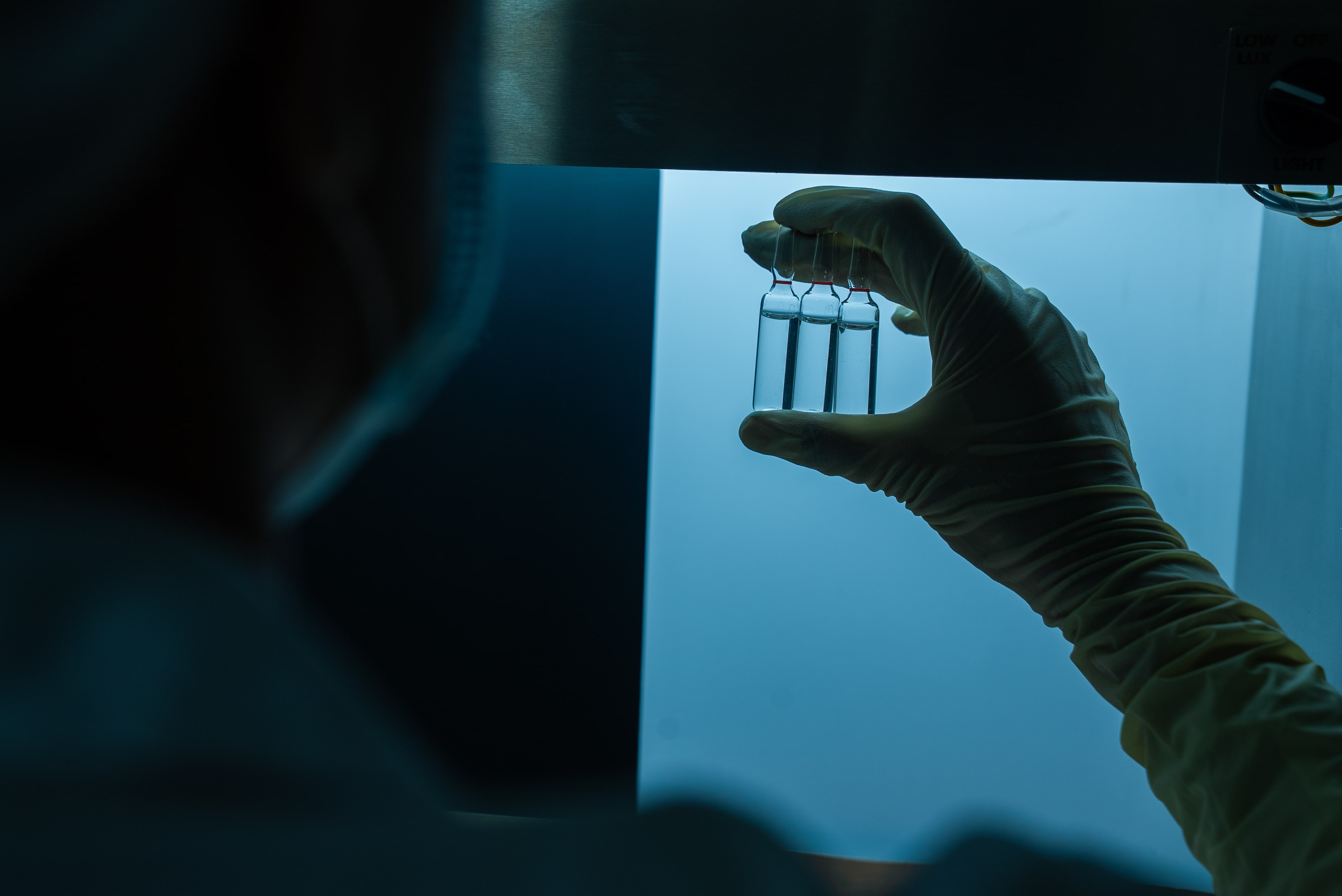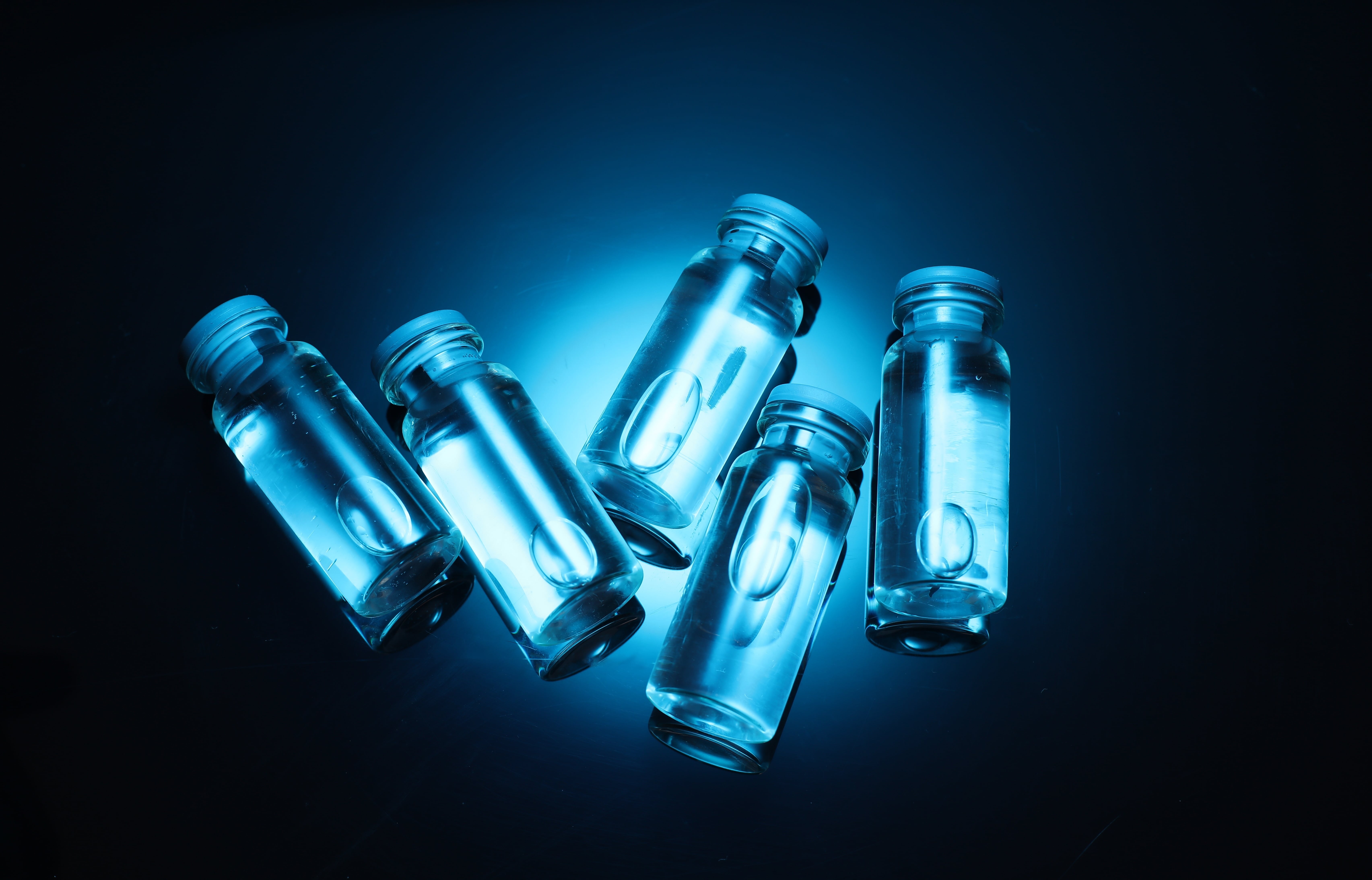NAD and Cancer: The Risks And What You Should Know
Last Updated: 28 January 2026

Nicotinamide adenine dinucleotide (NAD+) plays a vital role in energy metabolism, DNA repair, ageing and immune function, making it one of the most important molecules in human health and disease. Yet its connection to cancer remains complex and often misunderstood. Current research suggests NAD+ may both support the body in fighting cancer and, under certain conditions, contribute to tumour growth and cancer development. In this article, we break down what you should know about the relationship between NAD+ and cancer.
The insights provided in this blog are by Vivere’s Head of Nutrition, Yusra Serdaroglu Aydin, a registered dietitian with a background in nutrition, food engineering and culinary arts. Her approach is grounded in science and shaped by a strong understanding of personalised nutrition and the human microbiome.
Key Takeaways
NAD+ is essential for cellular repair, energy metabolism, and immune function, influencing both healthy and cancerous cells.
The relationship between NAD+ and cancer is dual in nature. Cancer cells often rely on NAD+ to fuel their rapid growth, but adequate NAD+ also supports DNA repair and anti-tumour immunity.
Current human studies provide no evidence that NAD+ supplementation increases cancer risk in healthy individuals, though long-term data are still needed.
NAD+ is important for boosting immunity to detect cancerous cells effectively and for supporting DNA repair in damaged cells.
NAD+ levels may be naturally supported through proper nutrition, regular exercise, and sufficient sleep.
What is NAD+ and Why It Matters
NAD+ is a coenzyme found in every cell that helps convert food into energy (ATP). It also regulates DNA repair, gene expression, and immune-cell metabolism. Without enough NAD+, cells struggle to repair DNA, leading to faster ageing and higher disease risk.
As we age, NAD+ levels naturally decline due to stress, inflammation, and oxidative damage. This affects mitochondria (the cell’s energy producers), DNA stability, and the body’s ability to respond to cellular stress. Both healthy and cancer cells rely on NAD+ to survive and replicate, making its regulation particularly important in cancer research.

The Dual Role of NAD+ in Cancer
NAD+ has a “double-edged sword” relationship with cancer:
Protective role: Healthy cells use NAD+ to activate DNA repair enzymes such as PARPs (poly ADP-ribose polymerases) and sirtuins. These enzymes fix DNA damage and prevent mutations that could lead to cancer. NAD+ also supports immune surveillance, helping the body identify and destroy abnormal cells [1].
Potential risk: Cancer cells can hijack NAD+ to fuel their rapid growth. Many tumours increase NAD+ demand by upregulating enzymes in the NAD+ salvage pathway, such as NAMPT. Blocking this pathway in research has been shown to slow tumour growth, confirming cancer cells’ dependence on NAD+ [2]. It’s important to note that this does not mean NAD+ supplements cause cancer. It highlights that cancer cells, once formed, can exploit a molecule that is otherwise vital for health.
What is the NAD+ salvage pathway?
The NAD+ salvage pathway is a natural recycling system inside your cells that turns a used form of Vitamin B3 called 'Nicotinamide' back into active NAD+ fuel. This process acts like a battery charger that tops up your energy levels so your body can keep working properly.
Your cells prefer this method because it is faster and easier than making new energy from scratch. Special helpers called enzymes, specifically NAMPT, take the used Nicotinamide (NAM) and convert it into a molecule called NMN before it becomes fully charged NAD+ again.
This pathway is vital for keeping your high-energy organs like the brain and heart healthy. It ensures you have enough power for important jobs like fixing broken DNA, fighting off illness with your immune system, and maintaining a healthy metabolism.
How Adequate NAD+ Can Be Protective Against Cancer
Low NAD+ levels can impair DNA repair and weaken immune defence. NAD+ fuels DNA repair enzymes like PARPs and sirtuins, which protect genetic integrity. Without enough NAD+, DNA damage accumulates, increasing the risk of mutations over time.
NAD+ also strengthens immune function. In tumour environments, an enzyme called CD38 can consume NAD+, causing T-cell exhaustion and reduce antitumour activity. Preclinical studies show that inhibiting CD38 preserves NAD+ in immune cells, improves mitochondrial function, and boosts T-cell-mediated destruction of tumour cells [3]. Maintaining healthy NAD+ may therefore enhance the body’s natural ability to repair damage and fight cancer.
Can higher NAD+ levels promote tumour growth?
Some studies have explored whether boosting NAD+ could help cancer cells:
In mice, nicotinamide mononucleotide (NMN) supplementation did not increase cancer risk nor cause tumour formation over the lifetime and improved lifespan and overall health [4].
Another study found that nicotinamide riboside (NR) supplementation increased metastasis in a specific aggressive breast cancer mouse model, but this has not been seen in humans [5].
Nicotinamide, NR, NMN and direct NAD+ infusions act through different biological pathways and do not raise or influence NAD+ levels in the same way.
To date, no clinical studies show that NAD+ supplementation causes cancer. In fact, some human trials suggest protective effects:
The ONTRAC Phase 3 trial found that nicotinamide reduced the rate of new non-melanoma skin cancers by 23% in high-risk patients over 12 months [6].
A 2025 veterans’ cohort study confirmed similar findings, showing lower rates of keratinocyte cancers with nicotinamide use [7].
Overall, while tumours can exploit NAD+, restoring normal NAD+ levels in healthy individuals does not trigger cancer. Supplementing NAD+ may improve metabolic health and support longevity, though caution is advised for those with existing cancer or high-risk genetic mutations. It's also important to note that animal study results do not directly translate to humans.
NAD+-Targeted Therapies in Cancer Research
Pharmaceutical research has explored two strategies:
Reducing NAD+ in cancer cells – Drugs like NAMPT inhibitors aim to starve tumours of NAD+ to slow growth [8].
Boosting NAD+ in healthy cells – NAD+ therapies may protect normal tissues during chemotherapy or radiation. The goal is to find a balance where cancer cells are selectively deprived of NAD+, while normal cells are supported in their repair and recovery processes [9].
These approaches highlight the nuanced nature of NAD+ in oncology. It is neither wholly beneficial nor wholly detrimental, but its manipulation must be context-specific and closely monitored.
Practical Guidance: NAD+ and Cancer Risk
Based on current evidence:
Avoid pharmacological NAD+ boosting through supplementation in cases of active cancer unless under specialist or oncological supervision.
For cancer survivors, NAD+ support should be approached cautiously and only integrated with medical advice.
For healthy adults, short-term NAD+ supplementation through injections, drips, or NAD+ precursor use appears safe when used responsibly and in standard dosages.
Lifestyle remains key: supporting NAD+ naturally through nutrition, exercise, sleep and stress management reduces risk without pharmacological intervention.
Lifestyle Strategies to Support Healthy NAD+ Levels
While supplementation can play a role, lifestyle and nutrition are equally important for maintaining optimal NAD+.
Eat niacin-rich foods such as beef liver, chicken, salmon, rice and peanuts [10].
Exercise regularly to stimulate NAD+ synthesis and mitochondrial function [11].
Prioritise sleep and stress reduction to limit NAD+ depletion [12].
Consider time-restricted eating to promote metabolic efficiency [13].
These evidence-based practices strengthen cellular resilience, protect DNA and help maintain optimal NAD+ function throughout life.
Nutritionist’s Corner: Final Thoughts
"The relationship between NAD+ and cancer is complex but deeply significant. NAD+ supports essential cellular functions that maintain health, yet tumours can also exploit it for survival. Current human data do not show that NAD+ supplementation increases cancer risk, though caution is advised for anyone undergoing cancer treatment or who has a treatment history. The therapeutic use of NAD+ must be carefully tailored to each individual’s biology by healthcare providers".
"While the science of NAD+ and cancer continues to evolve, one principle remains clear: context matters. NAD+ is essential for healthy cellular function, but its role in cancer biology is highly dependent on timing, dosage, and an individual’s underlying health status. As research develops, a personalised approach, guided by genetics, medical history and clinical supervision will be key to using NAD+ safely and effectively.
Supporting natural NAD+ production through lifestyle remains the most reliable strategy for long-term health, while therapeutic interventions should always be considered carefully and in collaboration with healthcare professionals".
Vivere helps you take control of your health with personalised insights from state-of-the-art gut microbiome testing, nutritional guidance, science-backed supplements, NAD+ injections and expert support. Sign up today and start living better, for longer.
Sources
[1] Fueling genome maintenance: On the versatile roles of NAD+ in preserving DNA integrity - PMC
[2] Review of various NAMPT inhibitors for the treatment of cancer - Frontiers
[3] The Pharmacology of CD38/NADase: An emerging target for cancer and aging diseases - PMC
[4] Long-term NMN treatment increases lifespan and healthspan in mice in a sex dependent manner - PubMed
[6] A Phase 3 Randomized Trial of Nicotinamide for Skin-Cancer Chemoprevention - PubMed
[7] Nicotinamide for Skin Cancer Chemoprevention - PubMed
[8] NAMPT: A critical driver and therapeutic target for cancer - ResearchGate
[9] Advances in NAD-Lowering Agents for Cancer Treatment - MDPI
[10] Niacin - Health Professional Fact Sheet - NIH
[11] The role of NAD+ metabolism and its modulation of mitochondria in aging and disease - Nature
[12] Vitamin B3 Ameliorates Sleep Duration and Quality in Clinical and Pre-Clinical Studies - MDPI
[13] Time-Restricted Eating: Benefits, Mechanisms, and Challenges in Translation - PMC
Author

Yusra Serdaroglu Aydin, MSc RD
Head of Nutrition and Registered Dietitian
Yusra is a registered dietitian with a multidisciplinary background in nutrition, food engineering, and culinary arts. During her education, her curio...
Peer Reviewed by

Rosie Warwick, BSc (Hons) RD
Dietitian
Rosie is an HCPC-registered clinical dietitian with experience across both paediatric and adult settings. Her current role focuses on specialist weigh...